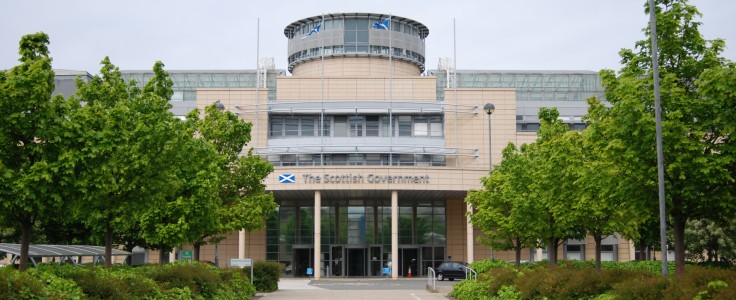Scottish Government responds to concerns over Private Housing (Tenancies) (Scotland) Bill
The Scottish Government has replied to our VPSS UnaMarie

In March our Vice President Student Support UnaMarie Darragh wrote to the Scottish Government expressing the SRC’s concerns about the Private Housing (Tenancies) (Scotland) Bill. Bethany Wilson of the Housing, Regeneration and Welfare Directorate has replied to UnaMarie on behalf of the Scottish Government. Her full response can be found below:
Dear Ms. Darragh,
Thank you for your correspondence of 11 March 2016 to the Minister for Housing and Welfare, Margaret Burgess, regarding your concern about the grounds for eviction resulting from criminal or anti-social behaviour as set out in the Private Housing (Tenancies) (Scotland) Bill (the Bill), which was passed by the Scottish Parliament on 17 March 2016. I have been asked to reply.
It might be helpful if I begin by outlining the purpose and effect of our Stage 2 amendments 113 to 115. The discretionary antisocial behaviour ground in Schedule 3 of the Bill at introduction covers the tenant acting in an anti-social manner towards people who live in the let property and antisocial behaviour committed within, or in the locality of, the property. Amendment 113 makes two changes. Firstly, Amendment 113 (together with Amendment 115) extends the sorts of anti-social behaviour that may give rise to eviction. Specifically, it allows for eviction on the basis that the anti-social behaviour is of a nature that the Tribunal thinks warrants eviction, even if it is not behaviour that takes place near the property or is directed against someone living in it. For example, it would allow a tenant to be evicted for acting antisocially towards his landlord or a letting agent well away from the let property. The Tribunal would have to be satisfied the behaviour was of a kind that warrants eviction. It will decide whether the antisocial behaviour is ‘relevant’ i.e. decide whether it is reasonable to evict a tenant given the nature of the antisocial behaviour and who it was in relation to or where it occurred.
Secondly, Amendment 113 will ordinarily require an application for eviction on the antisocial behaviour ground to be made within 12 months of the antisocial behaviour occurring, unless the landlord has a reasonable excuse for not making the application within that period. This amendment narrows the circumstances under which this ground might be used. Amendment 114 is a technical amendment.
These changes will ensure that if a tenant behaves in an anti-social manner in a place away from the rented property, but that behaviour is connected to the person’s tenancy, there is a course of redress open to the landlord. This is only right and fair.
In cases of eviction involving a tenant’s criminal conviction or the criminal conviction of an associate, again, the Tribunal must be satisfied that the conviction is a ‘relevant conviction’ i.e. one which was committed by using, or allowing the use of the let property for an illegal or immoral purpose or which was committed within or in the locality of the let property and is punishable by imprisonment. Therefore, the conviction must be sufficiently related to the let property and serious. The Tribunal will use its discretion when determining whether a conviction is ‘relevant’ or not. It is not the intention of this legislation that tenants who have already received a criminal conviction are punished again through the loss of their tenancy, unless their behaviour has also had a negative impact on the property, their neighbours or others in the local area and continues to do so. Nor is it the intention that a tenant could lose their home because of associate’s conviction for something completely irrelevant or unrelated to the tenancy.
I hope that this information will reassure you.
Yours sincerely,
Bethany Wilson
Bethany Wilson’s Letter (PDF): Private Housing (Tenancies) (Scotland) Bill ref 20160009629 – 4 April 2015